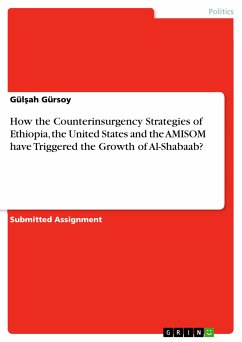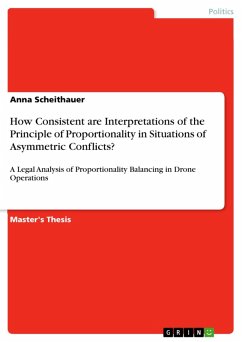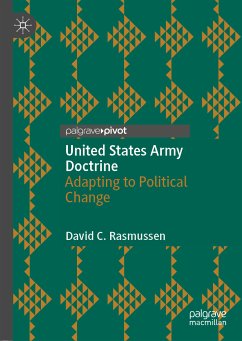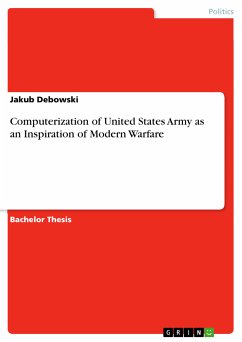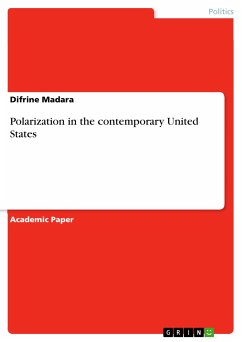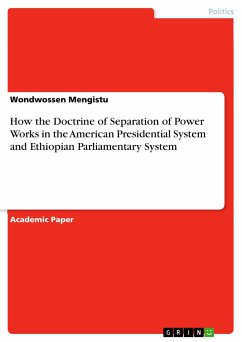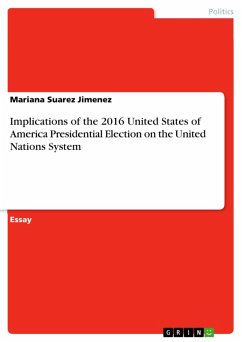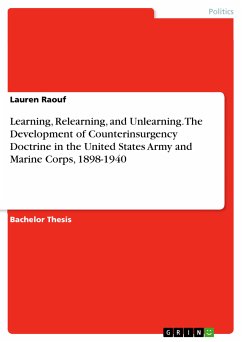
Learning, Relearning, and Unlearning. The Development of Counterinsurgency Doctrine in the United States Army and Marine Corps, 1898-1940 (eBook, PDF)
Versandkostenfrei!
Sofort per Download lieferbar
Statt: 47,95 €**
36,99 €
inkl. MwSt. und vom Verlag festgesetzt.
**Preis der gedruckten Ausgabe (Broschiertes Buch)
Weitere Ausgaben:

PAYBACK Punkte
0 °P sammeln!
Bachelor Thesis from the year 2008 in the subject Politics - Region: USA, Harvard University, language: English, abstract: The present thesis examines the factors that led to the development of counterinsurgency doctrine in the United States Army and Marine Corps, focusing on the period from 1898-1940, and why the two organizations had strikingly different approaches and beliefs about the importance of this doctrine. When the Prussian military theorist Carl von Clausewitz described war as "simply a continuation of political intercourse, with the addition of other means," he was writing primari...
Bachelor Thesis from the year 2008 in the subject Politics - Region: USA, Harvard University, language: English, abstract: The present thesis examines the factors that led to the development of counterinsurgency doctrine in the United States Army and Marine Corps, focusing on the period from 1898-1940, and why the two organizations had strikingly different approaches and beliefs about the importance of this doctrine. When the Prussian military theorist Carl von Clausewitz described war as "simply a continuation of political intercourse, with the addition of other means," he was writing primarily with reference to conventional warfare between the national armies fighting for the achievement of a specific set of political objectives. However, Clausewitz's understanding of war is equally applicable to a different kind of warfare: revolutionary warfare, defined by John Shy and Thomas Collier as "the seizure of political power by the use of armed force." In this type of warfare, the insurgent force attempts to gain political power (usually the power of the state) while the counterinsurgent force-usually the state, although sometimes supported by outside actors-attempts to retain its hold on political power. Revolutionary war is at its heart a struggle for the support of the people, an explicitly political kind of warfare. The problems of waging a successful counterinsurgency have plagued military experts for centuries. In a counterinsurgency, the strengths of a conventional military power are turned into weaknesses, as applying overwhelming force is generally counterproductive to the goal of winning popular support. For most conventional military forces, fighting a counterinsurgency means changing the organization's very way of thinking about warfare. Military organizations known for their technological and conventional warfare prowess are forced to adopt new strategies and ideas when faced with the harassing tactics of insurgents who need only strike when it suits them, while the counterinsurgent force must defend everything, everywhere, at all times. Isolating the insurgents from the population becomes the foremost goal of the counterinsurgency, requiring a delicate and shifting balance of offensive, defensive, and political operations often quite separate from the normal scope of military training and preparation.
Dieser Download kann aus rechtlichen Gründen nur mit Rechnungsadresse in A, B, BG, CY, CZ, D, DK, EW, E, FIN, F, GR, HR, H, IRL, I, LT, L, LR, M, NL, PL, P, R, S, SLO, SK ausgeliefert werden.




